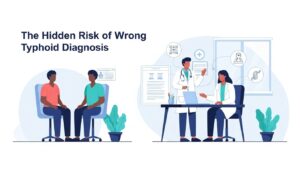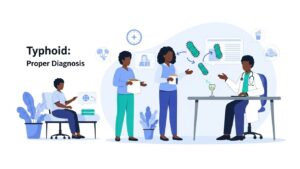Turning 40 is a milestone many celebrate, but it’s also a time to take control of your health. Many serious conditions develop quietly and without symptoms. Men’s health screenings over 40, including heart and cholesterol tests for men, play a vital role in staying proactive. Early detection through screening gives you a clear advantage: you catch problems sooner, treat them earlier, and preserve quality of life. Below are five essential screening tests every man should consider once he reaches 40.
1. Blood Pressure (Hypertension) is simple, crucial, and lifesaving
High blood pressure often has no obvious symptoms but is a leading risk factor for stroke and heart disease. Screening is quick and non-invasive: a trained nurse or clinician measures your blood pressure with a validated device. If the reading is high, your healthcare team will plan follow-up checks and advise lifestyle changes and medication where needed. Men with a family history of hypertension, diabetes, kidney disease, or obesity should screen more frequently.
What to expect: sit quietly for five minutes, have your blood pressure measured on two separate visits before diagnosing sustained hypertension.
2. Diabetes Screening because sugar damages quietly
Type 2 diabetes can develop with a few early warning signs. High blood glucose injures blood vessels and organs over time. Screening typically involves a fasting blood sugar or HbA1c test; urine tests can also offer clues. If you’re overweight, physically inactive, or have a family history of diabetes, screening becomes essential.
Proactive tip: small changes reducing sugary drinks, walking daily, and losing even modest weight, significantly reduce progression from prediabetes to diabetes.
3. Cholesterol (Lipid Profile) reduces heart and stroke risk
A lipid profile measures total cholesterol, LDL (often called “bad” cholesterol), HDL, and triglycerides. High levels of certain types of cholesterol accelerate plaque formation in arteries, increasing the risk of heart attack and stroke. Screening is a simple blood test. Based on results, your physician will recommend dietary changes, exercise, and medication if needed.
Visual cue for audiences: emphasize the contrast between unhealthy and healthy diet choices it’s one of the clearest, actionable steps men can take.
4. Prostate Health enlargement and cancer screening
Prostate enlargement (benign prostatic hyperplasia) and prostate cancer become more common with age. Two main ways to assess prostate health are symptom review/clinical exam and tests such as prostate ultrasound and the PSA(prostate-specific antigen) blood test. If you notice urinary frequency, especially at night, or a change in urinary flow, discuss this with your clinician. Screening decisions should be individualized, consider family history and a shared decision-making conversation with a clinician.
Practical note: not every elevated PSA indicates cancer; your doctor will guide the next steps, including imaging or specialist referral.
5. Colon & Rectal Screening: colonoscopy or stool test
Colon cancer screening detects polyps or early cancers before symptoms appear. The gold standard is colonoscopy, a direct visual exam of the large intestine, which also allows immediate removal of suspicious polyps. Where colonoscopy isn’t accessible, stool-based tests that detect hidden blood (occult blood) can serve as a preliminary screen. If stool tests are positive, a colonoscopy is indicated.
Who should act first: men with a family history of colorectal cancer or consistent symptoms (unexplained weight loss, persistent bleeding, or long-term change in bowel habits) should prioritize prompt evaluation.
Putting it together: an annual wellness approach
These five screenings form the backbone of a practical, proactive health plan for men over 40. Work with your clinical team to create a schedule. Many men start with annual blood pressure and cholesterol checks, and add diabetes and prostate assessments as recommended. Colonoscopy frequency depends on findings and family history; your clinician will advise.
Common questions (FAQs)
Q: How often should I screen?
A: Frequency depends on results and risk factors. If tests are normal and you’re low-risk, some checks may be annual, while others (like colonoscopy) occur less often. Your clinician will personalize a schedule.
Q: Do screenings require fasting?
A: Lipid profiles and fasting blood glucose often require fasting. Confirm instructions with your lab or clinician.
Q: Will screening always detect disease?
A: No test is perfect, but regular screening greatly increases the chance of early detection and better outcomes.
Conclusion
Screening is not a one-time event; it’s a habit. If you’re 40 or approaching it, schedule a health check. Our specialists at Well-Life Hospital are available to guide screening, interpret results empathetically, and build a plan tailored to you.
Book a screening: Well-Life Hospital, 12B Atbara Street, Wuse 2, Abuja.






